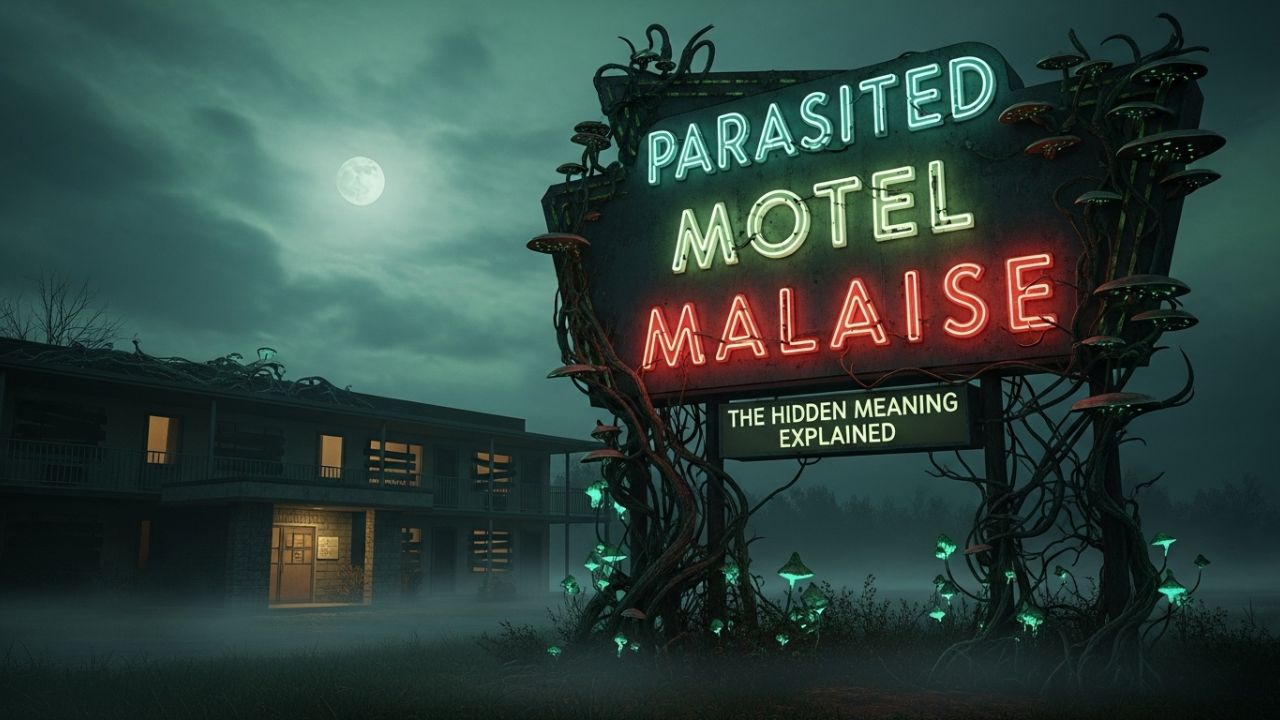Introduction: The Rise of Parasited Motel Malaise
In recent discussions about modern life, digital overload, and psychological fatigue, one phrase that’s quietly gaining attention is “Parasited Motel Malaise.” It’s an unusual combination of words that immediately sparks curiosity. The term captures a feeling that many people experience today a strange emotional emptiness that seeps into everyday life.
Parasited Motel Malaise describes a state of slow psychological decay, where comfort becomes confinement, and familiarity turns into fatigue. It’s the sensation of being stuck in a temporary space like a motel that has been quietly invaded by invisible forces draining one’s energy and sense of purpose.
This concept mirrors what millions experience in the digital era: overexposure to information, loss of real connection, and the creeping sense that modern comfort often conceals quiet despair.
What Does Parasited Motel Malaise Really Mean?
To understand Parasited Motel Malaise, it helps to break the phrase into its symbolic parts:
-
Parasited: Something that has been invaded or drained by an external force like emotional burnout caused by constant stress or negativity.
-
Motel: A temporary place, representing transitional phases in life where nothing feels permanent.
-
Malaise: A feeling of unease or discontent not an illness, but an emotional fog that weighs on the spirit.
Put together, Parasited Motel Malaise becomes a powerful metaphor for a world caught between motion and stagnation where people drift from one experience to another, feeling consumed and disconnected along the way.
The Psychology Behind Parasited Motel Malaise
From a psychological standpoint, Parasited Motel Malaise describes the slow erosion of motivation and meaning. It’s not depression in the clinical sense but rather a chronic fatigue caused by overstimulation, lack of purpose, and emotional clutter.
People living in this state often describe feeling “numb yet restless.” They chase new experiences, jobs, or relationships, hoping for fulfillment, but each one feels temporary and hollow. Like staying in a motel — comfortable but never truly home life feels borrowed rather than lived.
This psychological exhaustion is fueled by:
-
Endless social comparison on digital platforms.
-
Constant work pressure without meaningful rest.
-
Superficial connections replacing genuine relationships.
-
Lack of grounding or emotional stability.
In short, Parasited Motel Malaise reflects the collective burnout of an always-on generation.
Cultural and Social Symbolism
Beyond psychology, Parasited Motel Malaise also serves as a mirror for society. The motel, once a symbol of freedom and travel, now represents impermanence and transience. The “parasites” symbolize the things that slowly drain modern life consumerism, media noise, misinformation, and shallow interactions.
Our culture often celebrates speed, efficiency, and consumption. Yet these very elements are what create malaise a quiet, creeping sense that everything is temporary and nothing truly satisfies.
In this sense, Parasited Motel Malaise is not just an individual feeling but a cultural diagnosis. It captures the spirit of an age where people feel busier but emptier than ever before.
Parasited Motel Malaise in Modern Storytelling and Media
The idea behind Parasited Motel Malaise has been subtly explored in film, music, and literature, even if not named directly.
-
Movies like Her, Drive, and No Country for Old Men echo its lonely, transient energy characters drifting through lifeless spaces searching for meaning.
-
Music albums that focus on isolation and melancholy like Radiohead’s Kid A or The Weeknd’s After Hours — also capture this emotional tone.
-
Writers and artists use motel imagery to symbolize the in-between state of the human experience familiar but alien, intimate but unsettling.
These works reveal how Parasited Motel Malaise resonates deeply with the 21st-century psyche where emotional exhaustion often hides behind neon lights and temporary comfort.
How to Recognize Parasited Motel Malaise in Your Own Life
The first step to overcoming Parasited Motel Malaise is awareness. You might be experiencing it if you notice:
-
You feel emotionally drained even after rest.
-
Everyday life feels repetitive or meaningless.
-
You spend time online but feel disconnected afterward.
-
Motivation fluctuates without clear reason.
-
You feel “occupied” by obligations but not fulfilled.
Recognizing these signs doesn’t mean something is wrong with you it means you’re human and reacting to an overstimulated environment.
Overcoming Parasited Motel Malaise: A Path to Renewal
Escaping Parasited Motel Malaise requires both inner reflection and external change. Here are practical steps to regain balance:
-
Detox from Noise: Reduce unnecessary digital exposure. Limit time on social media and news that drain your attention.
-
Reclaim Solitude: Spend time in stillness away from screens and constant input. Solitude restores inner calm.
-
Reconnect Authentically: Invest in relationships that energize rather than exhaust you.
-
Redefine Purpose: Instead of chasing trends, focus on what gives you genuine meaning.
-
Create Real Rest: Rest isn’t just sleep; it’s time spent without performance or pressure.
The goal isn’t to escape life’s motels but to transform them turning transient spaces into sanctuaries of renewal.
Why Parasited Motel Malaise Matters Today
In many ways, Parasited Motel Malaise reflects the core struggle of our modern existence. We live surrounded by technology that promises connection but often delivers isolation. We have more choices than ever, yet struggle to find meaning in them.
By naming this condition, we gain power over it. Understanding Parasited Motel Malaise helps us see the subtle forces shaping our emotions and choices allowing us to rebuild authenticity in a world full of noise.
Conclusion: Turning Malaise into Mindfulness
Parasited Motel Malaise is more than just a poetic phrase it’s a lens through which we can view the quiet burnout of the modern soul. It describes a generation living in motion yet standing still, surrounded by comfort yet haunted by emptiness.
The cure isn’t escape but transformation. By becoming conscious of what drains us, reclaiming our focus, and embracing presence, we can turn malaise into mindfulness. The parasited motel once a symbol of decay can become a metaphor for renewal, self-awareness, and lasting peace.

